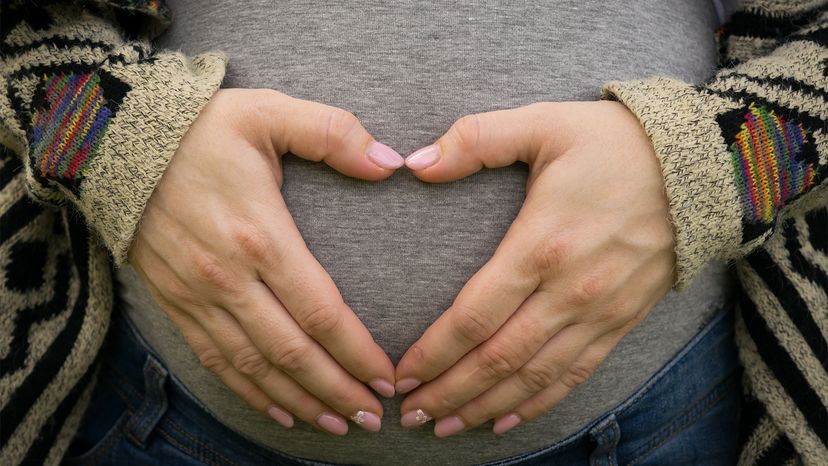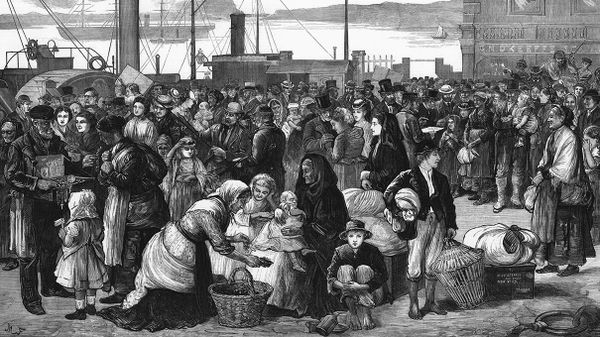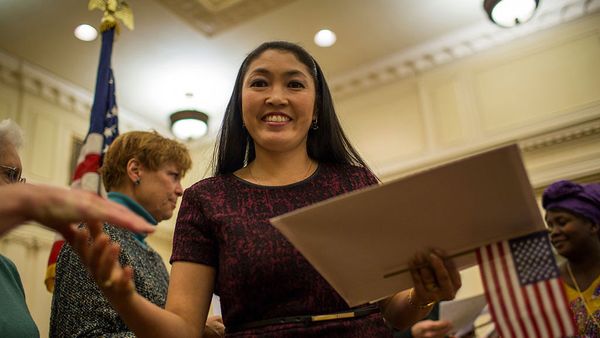Right now, the coast is almost clear for non-citizens to come to the U.S. to have a baby. First, of course, a tourist has to go through an interview at an American consulate in her home country before being granted a visa to enter the U.S. Lying in that interview is basis for denial of entry and is considered fraud.
"If the policymakers think this is a problem, 1), pass a law; in order to get a visa, you can't be coming here for the sole purpose of [having a baby]. Or 2), you deal with it at the interview," Law says. "There are other ways of handling it that don't require a constitutional amendment. When you use a constitutional amendment, it's using an elephant gun to kill a mosquito."
If a mother-to-be is granted a visa, she still has to make it through Customs here. Generally speaking, the U.S. does not bar pregnant tourists from entering the country as long as they can prove they have enough insurance or money for medical bills. But ...
"Although there are no specific regulations prohibiting pregnant foreign nationals from entering the U.S.," according to U.S. Customs and Border Protection website, "entry is allowed or denied at the discretion of the admitting U.S. Customs and Border Protection (CBP) Officer."
Scaring away non-native parents-to-be, as Law suggests, is one way that could deter birth tourism. The idea is to tell potential tourists the negatives involved in having a baby on American soil: The fact that, as a citizen, the baby is "subject to the jurisdiction" of the U.S., meaning (for example) taxes eventually will be gathered, social security wages must be paid, and the child will someday have to register with Selective Service and would be eligible to be conscripted into the U.S. armed forces if a draft is reinstituted.
Still, many birth tourists see a future in which their child is eligible to be raised in the American educational system, enjoy Western culture and apply for government benefits.
Birth tourists, by definition (unlike illegal aliens), take their newborn, complete with U.S. passport, back to their home country and wait for a time they can come to the U.S. legally. At 21, American citizens can bring family members to live in the U.S. with them in what is known (and decried by anti-immigration forces that have become increasingly vocal under the Trump administration) as "chain migration."
The plan sounds risky, but parents of hundreds of thousands of kids — the numbers differ — are willing to try.
"You're really telling me this is a strategy? That's a long, long game," Law says. "You're going to drop an anchor 21 years in advance and hope things work out?
"I think for many of these parents, it's an escape hatch. In case something goes wrong in their home country. This is a way for them to get out. But the thing is, a lot of things can happen in 21 years. ..."



